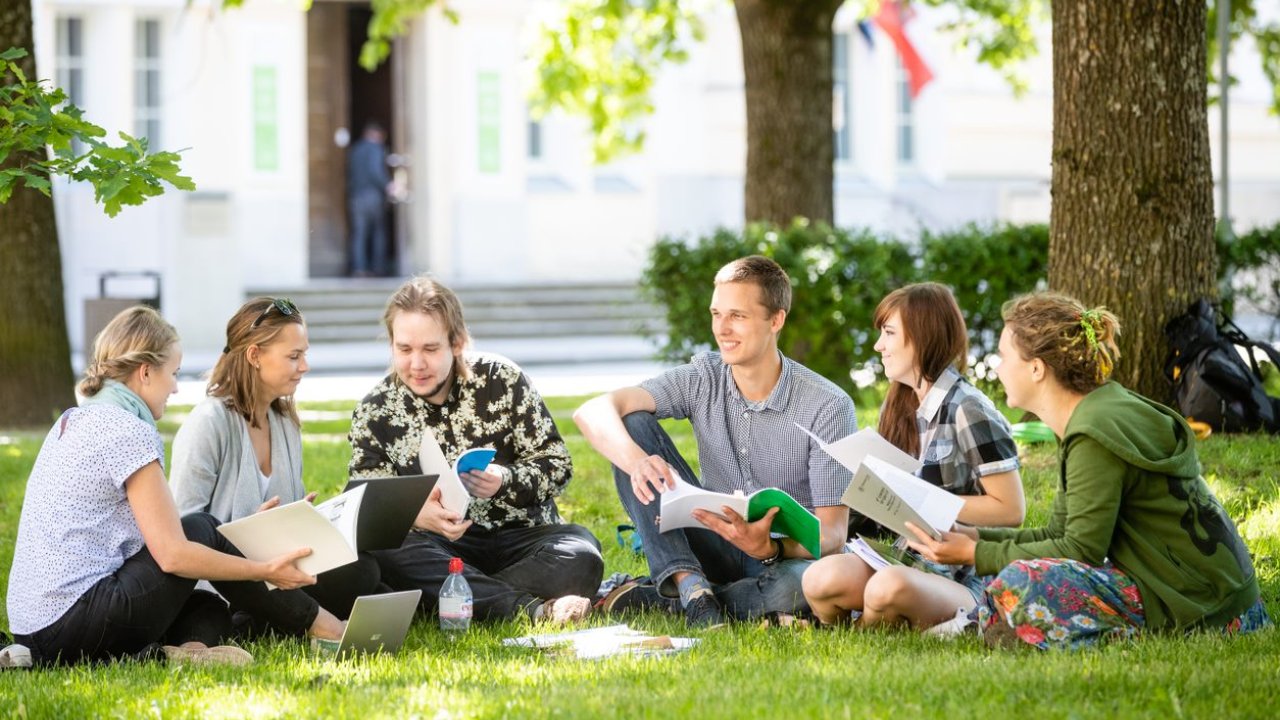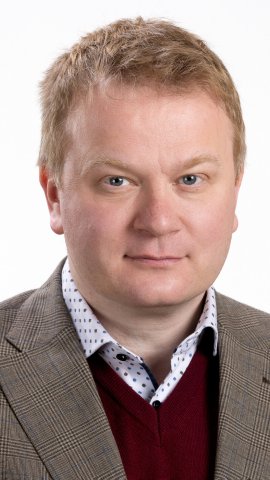Tulemas on rahvusvaheline konverents „Adolf von Harnack – lõhesid ületamas“

Tartu Ülikooli usuteaduskond ja Berliin-Brandenburgi teaduste akadeemia korraldavad 12.-13. septembril Tartus rahvusvahelise konverentsi „Adolf von Harnack – lõhesid ületamas“ („Adolf von Harnack – bridging the gaps“).
Konverents toimub Tartu Ülikooli peahoone auditooriumis 139 (Ülikooli 18–139), kõik ettekanded on inglise keeles. Konverentsil osalemine on tasuta ning kuulama on oodatud kõik teoloogia ja ajaloo huvilised, nii tudengid kui ka õppejõud.
Pärast kahte suurt Harnackile pühendatud konverentsi 1998. ja 2001. aastal, on aeg tegeleda teatud tähelepanuta jäänud aspektidega Harnacki-uuringutes. Arutelude jätkamiseks toimub 2022. aasta septembris Tartu Ülikoolis kolmas konverents. Tartu/Dorpat oli koht, kus Harnack sündis ja alustas oma õpinguid. Konverentsi pealkiri on „Adolf von Harnack – lõhesid ületamas“, sest Harnack ei olnud mitte ainult teoloogide ja ajaloolaste poolt hinnatud antiikkristluse uurija, vaid andis olulise panuse kaasaegsetesse aruteludesse kristluse olemuse ja ajaloo mõistmise üle.
Konverents keskendub küsimustele, mis võimaldas Harnackil ületada nii palju lõhesid teaduse ja humanitaarteaduste, teoloogia ja teiste humanitaarteaduste vahel? Mis olid need põhjused, miks ta ei suutnud ületada teatud lõhesid, näiteks ülikooli ja kiriku, saksa protestantluse ja vene õigeusu vahel? Kristlus kui praktilise usuelu ja isikliku vabaduse allikas ei ole kaotanud oma tähendust ka 21. sajandil, kuid teoloogia ja religiooni olukord Balti riikides, Saksamaal ja mujal Euroopas on hoopis teistsugune kui Harnacki ajal. Seetõttu kutsub konverents üles mõtlema Harnacki rolli ja mõju üle nii tema enda aja debattide kui tänapäeva arutelude kontekstis.
Konverentsi peaesinejad on prof. dr. dr. h.c. mult. Christoph Markschies, prof. em. Dr. Dr. h.c. Friedrich Wilhelm Graf ja dr. Jonathan D. Teubner.
Adolf von Harnack – bridging the gaps
University of Tartu, Estonia, 12–13 September 2022
Programme
12 September (Senate Hall)
9.00–9.30 – Registration and opening remarks
9.30–11.00 – Keynote: Prof. em. Dr. Dr. h.c. Friedrich Wilhelm Graf.
11.00–11.30 – Coffee
11.30–13.00 – Prof. Dr. Jan N. Bremmer. Harnack and the history of religion
Prof. Dr. Jaan Lahe. Adolf von Harnack research on Gnosticism
13.00–14.00 – Lunch
14.00–15.30 – Keynote: Prof. Dr. Dr. h.c. mult. Christoph Markschies. “Liberal”, “Lutheran”, “Baltic”, “German”? A Theologian of the “in between”
15.30–16.00 – coffee
16.00–17.30 – Dr. Claudia Kampmann. The correspondence between Adolf Harnack and Friedrich Althoff
Dr. Jakob Zollmann. Adolf von Harnack and His Demands on Legal History. Bridging Gaps between Theology and Jurisprudence?
19.00 – Dinner
13 September (Senate Hall)
9.30–11.00 – City tour
11.00–11.30 – Coffee
11.30–13.00 – Keynote: Dr. Jonathan D. Teubner. Harnack in English: a proposal for understanding the clash between theology and religious studies in the United States and Great Britain, 1945–2001
13.00–14.00 – Lunch
14.00–16.15 – Jun. Prof. Dr. Habil. Daniel Buda. Adolf von Harnack’s visit to Lutheran Saxonians in Transylvania and its impact on Lutheran and Orthodox theology
Assoc. Prof. Irina Paert, PhD candidate Andrey Shiskov. “It is not true that Germany is guilty of having caused this war”: Adolf von Harnack, war and the responsibility of intellectuals. Some reflections on the past and present.
Dr. Dmitri Starostin. Adolf von Harnack and the concept of the Christian community and of the Christian Era: Early 20th-century Theology as the bridge between Religion and History, between the Western thought an Russia
16.15–16.30 – coffee
16.30–17.30 – Dr. Iveta Leitane. The reception of A v Harnack in Jewish Thought from the Baltic
Assoc. Prof. Priit Rohtmets. Between nationality and theology: the reception of Harnack among theologians and clergy of the University of Dorpat
17.30 – closing remarks
18.00 – closing reception
14 September
A bus tour to see the birthplaces of famous Baltic-German and Estonian theologians and Estonian religious landscape
9.00 – Departure from Tartu
13.00 – Lunch
18.00 – Arrival in Tartu
Adolf von Harnack – bridging the gaps
University of Tartu, Estonia, 12–14 September 2022
Scholarly goals of the conference
In 2021 it was 170 years since the birth of Adolf von Harnack – a Baltic-German Lutheran theologian, a church historian, leading figure in German science management and a notable social figure of the 19th and the 20th century. Harnack was not only born in Dorpat (Tartu) and studied there, but he remained profoundly shaped by a certain type of Baltic-German Academia and Piety, even when he moved to Leipzig, Gießen, Marburg and Berlin in later years.
After two large conferences in 1998 and 2001 devoted to Harnack and organized by the Max-Planck-Society and the Berlin-Brandenburg Academy of Sciences (two institutions which predecessors, the Kaiser-Wilhelm-Society and the Prussian Academy of Sciences, were deeply influenced by Harnack), it is time to deal with certain overlooked aspects, to enrich the image of a man of many talents in the context of his different networks and to confront Harnack-Studies with new ideas about the History of Christianity and his very challenging lifetime, full of rapid social and religious change in Russia and Germany, since the appearance of new scholarly work at the turn of the millennium.
In order for the debates to continue a third conference will take place at the University of Tartu in September 2022. Tartu/Dorpat was a place, where Harnack was born and began his studies. The conference is titled “Adolf von Harnack – bridging the gaps”, because Harnack was not only a scholar of ancient Christianity, esteemed by Theologians as well as Ancient Historians, but made significant contributions to contemporary discussions on the “essence of Christianity” and on the understanding of History.
He was part of a discussion on the institutional framework of Theology and Religious Studies in Germany, but also involved in the Institution-Building of Institutes for Sciences, Libraries and Social Work. As a public intellectual of the German Empire before 1918 and the first German republic after 1918 he contributed significantly to a large number of public debates. He also bridged the gaps between scientific cultures in Europe, Britain and the United States.
What made him able to bridge so many gaps between Science and Humanities, Theology and other Humanities, University and broader public understanding of science? And what was the reason, that he could not bridge certain gaps, e.g. between University and Church, between German Protestantism and Russian Orthodoxy? The conference will be organized by the School of Theology and Religious Studies of Tartu University, because the Baltic-German background is crucial to understand Harnack and to answer such questions.
Can one use Harnack’s views to bridge those and other gaps also in the 21st century? Christianity as a source for practical religious life and personal freedom has not lost its meaning in the 21st century too, but the situation of Theology and Religion in the Baltic States, Germany and in the rest of Europe is quite different from Harnack’s times. The conference will focus on these and related questions, and calls to reflect upon Harnack’s role and influence on the debates of his own time and his relevance for the presence.
The conference is organised by the University of Tartu and Berlin-Brandenburgische Akademie der Wissenschaften. Working language of the conference is English and the length of papers is 30 minutes. The conference has a steering committee (Prof. Dr. Christoph Markschies, Prof. Dr. Jan Bremmer, Dr. Priit Rohtmets) responsible for the programme, approving the papers for the conference and dividing them into panels.
In addition to a two-day programme of presentations, a bus tour will take place on 14th September to visit the birthplaces of notable Baltic-German and Estonian theologians and get to know Estonian religious landscape (Lutheran and Orthodox churches in Southern and Central Estonia. It would enable to understand the context, in which Adolf von Harnack was raised.



